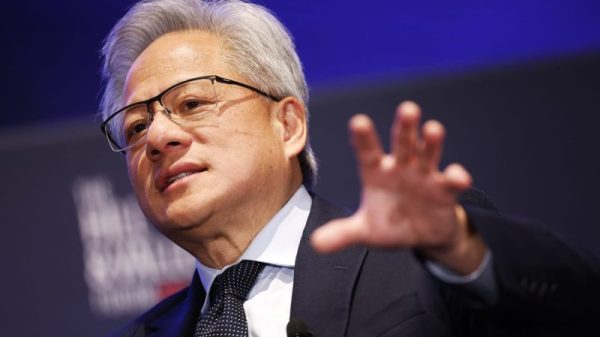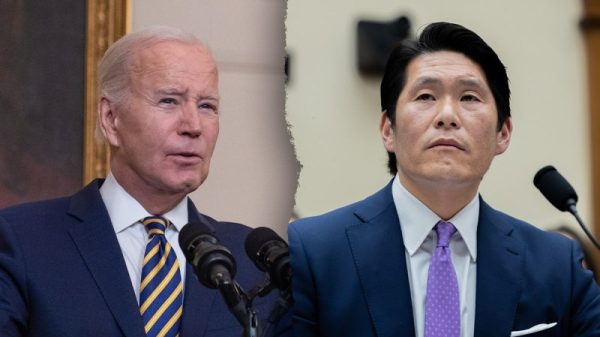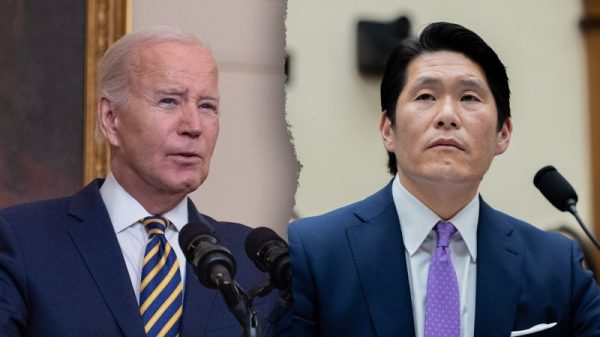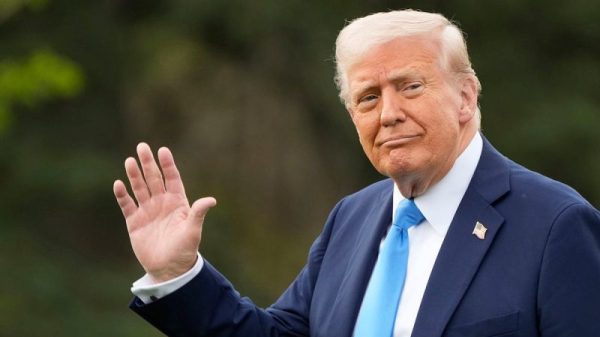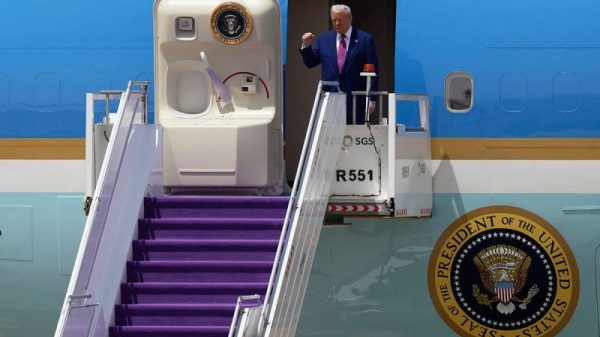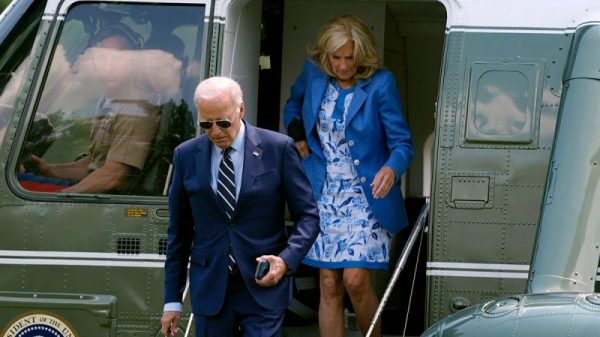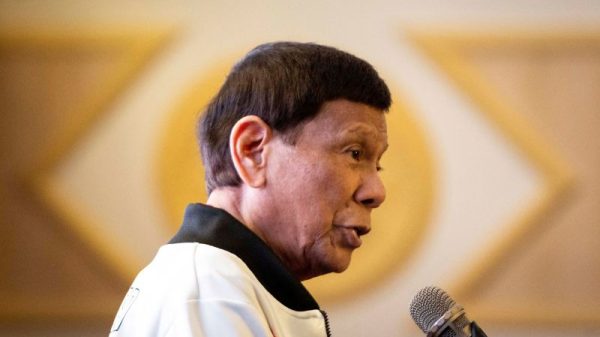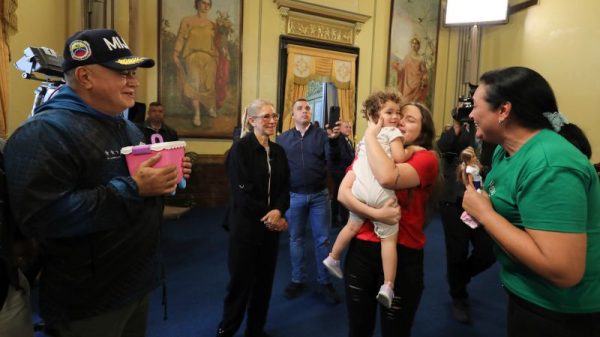In Frankfurt an der Oder, an ironic sign reads, “Frankfurt Oder/Slubice – no borders.” Slubice is the Polish town across the fast-flowing Oder river that marks the beginning of German Federal Republic.
Straddling the river, a bridge connects these two European nations. A single-file line of cars waits patiently to enter from Poland. German police, some carrying machine guns and adorned in high-viz vests, wave cars through or pull over the ones they deem suspicious.
“It’s daily business here that people don’t meet the entry requirements for Germany and perhaps even for the Schengen area and then have to be subjected to further police measures,” Tom Knie, a youthful-looking police officer says in between checks, referring to the passport-free travel zone within the European Union.
These are now the new realities on all of Germany’s land borders.
On September 16, Berlin ordered the “temporary reintroduction of border control” at Germany’s borders with Belgium, Holland, Luxembourg, France and Denmark.
The move extends the controls already in place at the borders with Poland, Austria, the Czech Republic and Switzerland that have been in operation since October.
The reason for the reintroduction of these checks lies largely in German domestic issues, all of them interconnected, but each compounding pressure on German Chancellor Olaf Scholz and his governing coalition, the most severe of which is coming from Germany’s burgeoning and increasingly confident far right.
But they also mark the end of an era of Germany’s liberal migration policy – Wilkommenskultur, or “welcome culture” – initiated by Scholz’s predecessor Angela Merkel in 2015 and raise questions over the viability of the entire Schengen zone.
Terror, migration and the AfD
As if a reminder of the importance the surging Alternative for Germany (AfD) party places in securing Germany’s border, pinned to the lamp posts along the road into Frankfurt/Oder are their campaign posters.
One reads “WE PROTECT YOU!” with an eagle, the federal symbol of Germany, swoops over a bin which contains a traffic light – the symbol of the coalition government here, known as the “traffic light coalition” – and more insidiously, a mosque.
A spate of terror attacks ahead of key state elections in right-wing leaning regions thrust the issue of migration front and center of the recent votes.
In June, a 25-year-old Afghan man killed a police officer in Manheim, and weeks later a 26-year-old Syrian man killed three people in knife attacks in Solingen. Both incidents were capitalized on by the AfD.
One of the party’s most controversial figures, Bjoern Hoecke, called on X for an “end to this misguided path of forced multiculturalism.”
In early September, the AfD became the first far-right party since the Nazi era to win outright a state election. Victory in Thuringia, a former East German state, was followed by a close second in Saxony.
Eroding Scholz’s control
The AfD has long campaigned on a ticket that is largely anti-immigration. Alice Weidel, the co-leader of the AfD, has said in the past that Germany had become “a country without borders, where anyone can come in and we do nothing about it.”
Their success, coupled with the rise of the far left, which also has anti-immigration stances, has found a way to gnaw at Scholz’s support and has ultimately forced the chancellor to act, especially on migration.
Speaking in the Bundestag ahead of the border restrictions, Scholz said “we’re doing this although it will be difficult with our neighbors… I think we have to get through this. It is now necessary for us to endure this dispute.”
There is potential for more misery to be heaped on Scholz and his government this weekend, as Brandenburg also goes to the polls to elect its regional leaders.
Current forecasts put the AfD on course for 28.4% of the vote, beating Scholz’s Social Democratic Party, which is polling in second with 24.7%.
The outcome could easily spell more trouble for Scholz and a further weakening of his coalition, and increase the calls for new federal elections sooner than next September.
The end of Wilkommenskultur?
The calls for more checks on Germany’s borders also mark a step-change at the heart of the European Union from Merkel’s policies.
In 2015, the long-serving, and ever popular former German chancellor Merkel opened Germany’s borders to migrants fleeing their homes – at the time largely Syrians because of the country’s civil war.
Migration data from the German government shows that 13.7 million non-German migrants entered from 2015-2023. In the same period before 2015 that number was just 5.8 million.
The moves by Merkel became known as Wilkommenskulturand and set Germany apart on the world stage in liberal migration policy.
He said the promise to control irregular migration at the border won’t be possible but instead “will raise expectations that will lead to demands to really build fences, in the end, to turn countries into fortresses.”
The current government, Knaus said, is “faced with the demand to regularize and control movement, [and] the government accepts the legitimacy of the demand [by the far-right] but then doesn’t have a policy that will work.”
For Knaus, the prospect of the change in German policy raises another specter.
“If you promise to control an emotional issue like migration and what you propose doesn’t work, not only are you not going to achieve your objective, you’re setting yourself up for a failure that will be exploited by those prepared to go much, much further,” Knaus said.







